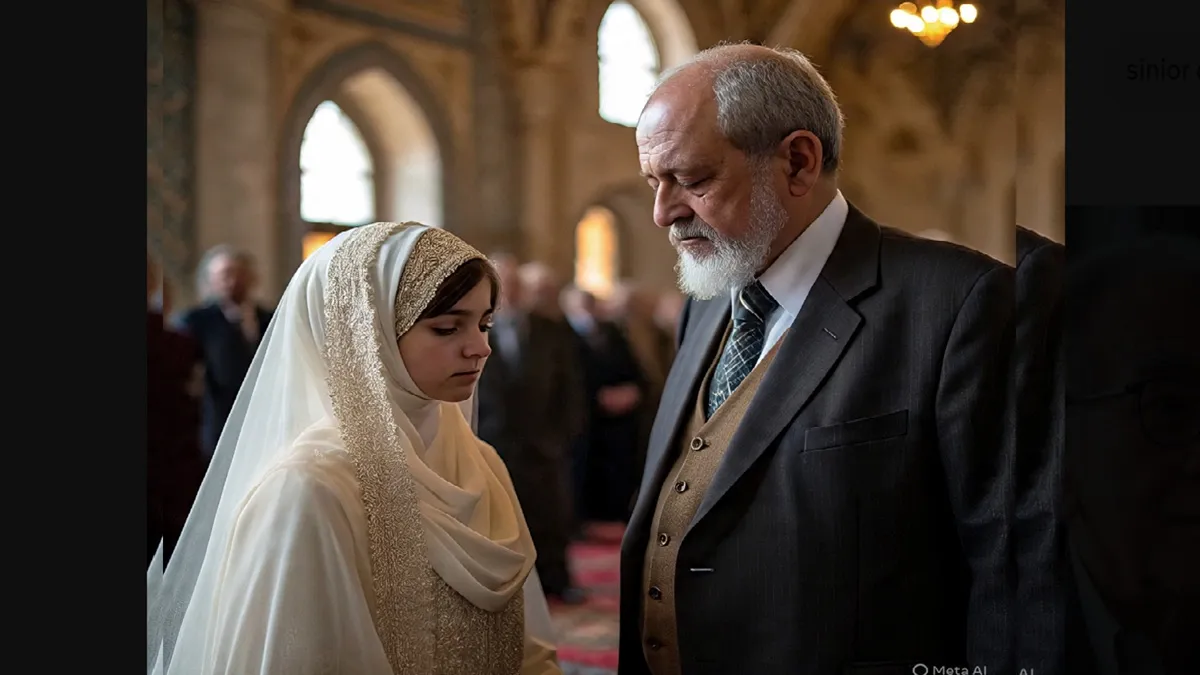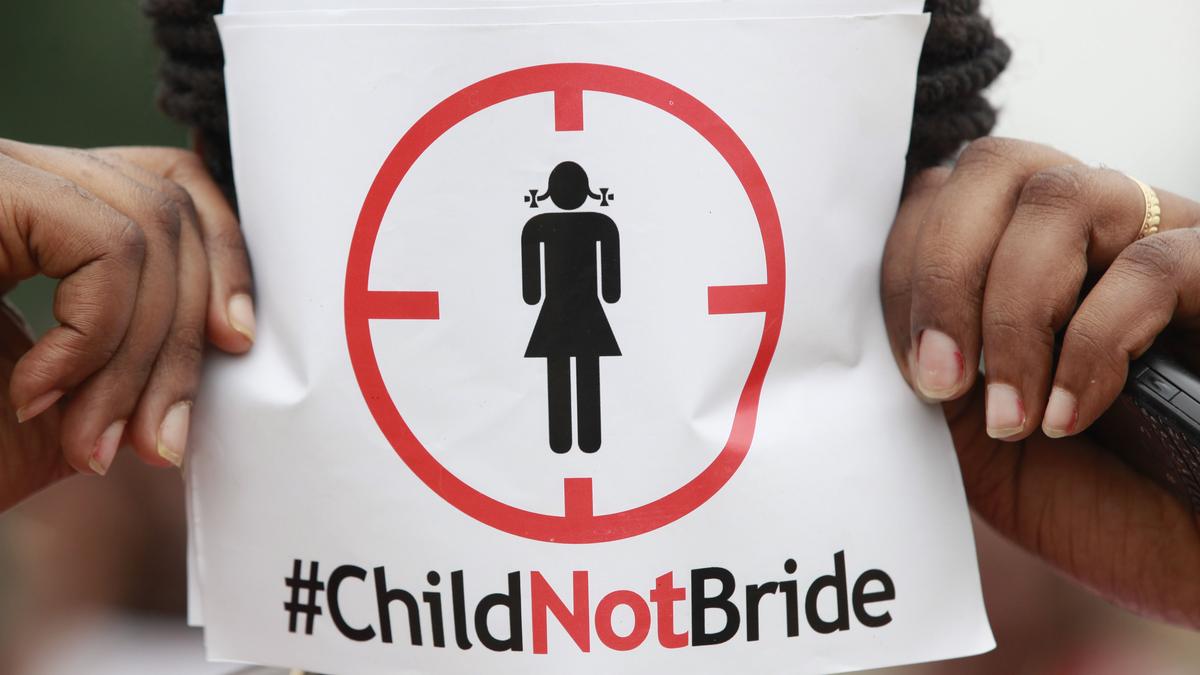In a significant legal intervention, members of a mosque committee in Bengaluru have been booked for allegedly facilitating a child marriage, highlighting ongoing challenges in enforcing the Prohibition of Child Marriage Act. Police action followed a complaint lodged by local residents, drawing attention to the persistence of child marriages in urban areas despite widespread awareness campaigns. Authorities emphasized that the case reflects the urgent need for vigilance and strict enforcement of laws protecting minors.
The investigation revealed that the alleged marriage involved a minor girl and that committee members had reportedly arranged the event, contravening legal provisions. Police officials confirmed that initial inquiries have identified key individuals responsible for organizing and facilitating the marriage. The case has prompted authorities to alert neighboring communities and religious institutions to prevent similar incidents. Legal experts note that such cases, though isolated, underscore the need for community awareness and institutional accountability.
Authorities have stated that the accused members will face charges under the Prohibition of Child Marriage Act, which prescribes strict penalties for anyone facilitating marriages involving minors. Officials emphasized that proactive monitoring by local authorities, civil society organizations, and community leaders is essential to protect children from such violations. Police have also highlighted the importance of reporting suspicious activities promptly to prevent child marriages from being conducted under the radar.
Societal and Legal Implications
Child marriage remains a violation of fundamental rights, affecting education, health, and personal development of minors involved.
Community sensitization and awareness campaigns are critical in curbing such practices and ensuring compliance with legal provisions.
The case came to light after local residents reported suspicious activities related to the marriage of a minor girl. Authorities noted that community vigilance played a crucial role in preventing the event from proceeding unnoticed. Police officials emphasized that citizen involvement in reporting illegal practices is a vital tool in enforcing child protection laws.
Investigation into the incident revealed that the mosque committee members had allegedly arranged the ceremony, including coordinating logistics, inviting attendees, and facilitating the event despite knowing the girl’s age. Police have collected statements from witnesses, family members, and attendees to build a strong case under the Prohibition of Child Marriage Act.
Authorities highlighted that the accused individuals could face severe legal repercussions, including imprisonment and fines, if found guilty. The strict penalties are designed to serve as a deterrent and reinforce the legal framework protecting minors from early marriages. Legal experts note that such enforcement actions are critical to changing community attitudes over time.
The police have also coordinated with child protection officers to ensure that the minor involved receives proper care, counseling, and support services. Social workers are providing guidance to the family regarding legal rights, health, and educational continuity, aiming to prevent long-term consequences for the child.
This incident underscores the ongoing challenge of eradicating child marriage in urban areas. While rural regions have traditionally been the focus of awareness campaigns, cities like Bengaluru continue to witness violations due to a combination of social pressure, traditional norms, and lack of awareness about legal consequences.
Community leaders and religious authorities have been urged to play a proactive role in preventing child marriages. Officials emphasized that influential figures in neighborhoods can educate families about legal penalties and the adverse impact of early marriage on children’s health, education, and future prospects.
Authorities are planning a series of awareness drives in the locality where the incident occurred. These campaigns will focus on educating families about the legal age for marriage, the importance of schooling for minors, and the risks associated with early marital commitments.
The case has sparked discussions among NGOs and child rights organizations regarding the need for stricter monitoring mechanisms. These organizations advocate for frequent inspections of marriage announcements, public events, and community activities to detect violations before they occur.
Police have indicated that digital surveillance and social media monitoring can be useful tools in identifying planned child marriages. With the increasing use of online platforms to announce and coordinate events, authorities can intervene early and prevent illegal marriages from taking place.
The investigation has also highlighted gaps in record-keeping at local administrative and religious institutions. Authorities suggest that maintaining proper records of marriage applications, age verification documents, and community events can help in early detection and deterrence of child marriages.
Legal experts stress that collaborative efforts between government authorities, law enforcement, NGOs, and community groups are essential for effective prevention. Multi-stakeholder engagement ensures that families receive both guidance and consequences for illegal practices, creating a culture of compliance.
The incident has prompted discussions about integrating child protection education into community programs, religious teachings, and school curricula. Experts argue that educating both parents and children about the legal age of marriage and its consequences can reduce the likelihood of violations.
Authorities have urged citizens to remain vigilant and report any suspected child marriage activities. Hotlines, complaint portals, and direct contact with police stations have been publicized to ensure prompt action and protect vulnerable minors.
Finally, the case serves as a reminder that despite legal frameworks and awareness campaigns, child marriage remains a challenge in both urban and rural contexts. Continuous monitoring, community engagement, and strict legal enforcement are critical to ensuring the rights, education, and well-being of minors in Bengaluru and across Karnataka.

Role of Law Enforcement
Police have reaffirmed their commitment to investigating the case thoroughly and ensuring that all individuals involved are held accountable under the law.
Officials have called for increased vigilance by local communities, religious organizations, and administrative bodies to prevent child marriages in the future.
The authorities have emphasized that follow-up monitoring will be conducted in the neighborhood to ensure no further attempts at child marriages occur. Local police, in coordination with child protection units, are conducting periodic checks on events and gatherings where minors might be at risk, reinforcing a preventive approach rather than reactive action.
Families in the community have been counseled on the legal consequences and health risks associated with child marriage. Officials stressed the importance of keeping children in school and ensuring proper education, highlighting that early marriage often disrupts academic growth and limits future opportunities for the child involved.
The mosque committee involved has been warned that any further violation of the law will result in immediate arrest and stricter judicial scrutiny. Authorities have also called on other religious and community bodies to take responsibility for monitoring their activities and preventing illegal marriages from occurring under their supervision.
Social workers and NGOs are planning follow-up workshops in the locality to reinforce awareness among parents and children. These sessions will focus on rights awareness, reporting mechanisms, and the long-term social, economic, and health impacts of child marriage, aiming to build community resilience against such violations in the future.
Protecting Children and Upholding the Law
Authorities have stressed that protecting minors is a collective responsibility, requiring the cooperation of families, community leaders, and law enforcement.
The case in Bengaluru highlights the ongoing challenge of eradicating child marriages in urban centers, emphasizing that strict legal action, public awareness, and proactive monitoring are essential to safeguard children’s rights.
Officials have urged citizens to report any suspected cases and assured that swift action will be taken to prevent violations. Social workers and NGOs have also been involved in counseling the affected families and providing guidance to prevent recurrence.
Police departments are working closely with child protection officers and legal authorities to ensure timely prosecution and to set a precedent that deters others from facilitating child marriages. The case serves as a reminder that community accountability and law enforcement must work hand-in-hand to protect vulnerable minors.
Education and outreach programs are being reinforced in neighborhoods where child marriages have been reported, emphasizing the importance of continued schooling, awareness of legal rights, and the risks associated with early marriage.
Officials also highlighted the role of religious and community leaders in discouraging child marriages and promoting compliance with the law. Active participation of respected figures in society can significantly reduce the occurrence of such practices.
Legal experts note that urban child marriages, while less frequent than in rural areas, often go unnoticed due to lack of monitoring, making vigilance and community reporting even more critical.

The authorities have reiterated that anyone found facilitating or organizing child marriages will face strict legal action, including imprisonment and fines, as prescribed under the Prohibition of Child Marriage Act.
NGOs working on child protection have offered to collaborate with police and community bodies to ensure continuous awareness campaigns, legal education, and support services for vulnerable families.
Finally, this case in Bengaluru underscores the continuing need for legal enforcement, community engagement, and social education to eradicate child marriage and protect the rights and well-being of minors across the city.
Follow: Karnataka Government
Also read: Home | Channel 6 Network – Latest News, Breaking Updates: Politics, Business, Tech & More


